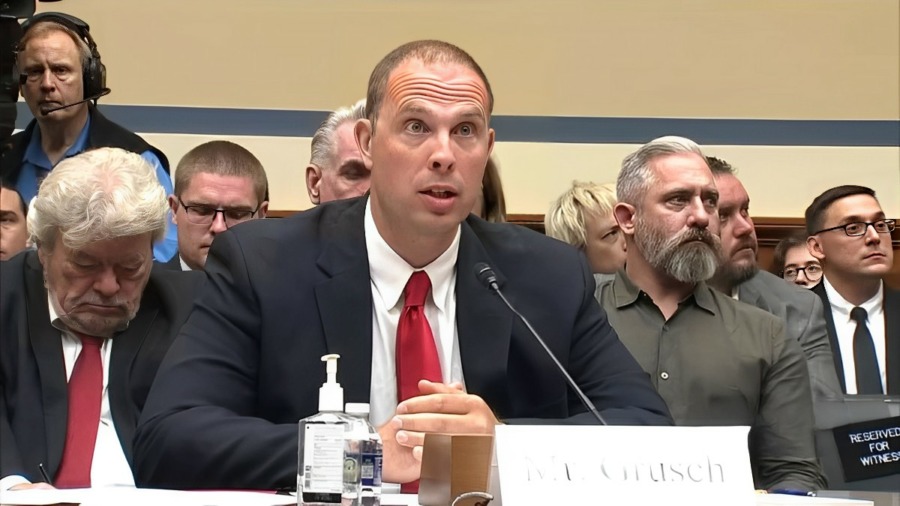Conspiracy theories have long been a captivating enigma in the tapestry of human thought, arising from the intricate interplay of our innate curiosity, the thirst for hidden knowledge, and the complexities of modern communication. Though most conspiracy theories are riddled with absurdity and untruths, some, shrouded in obscurity, find a peculiar marriage between incredibility and allure. The proliferation of tens of millions of conspiracy theories, no matter how farfetched or credible, demands contemplation on their validity and significance.
Recently, the renewed fascination with UFOs and government secrets has only heightened the intrigue surrounding conspiracy theories. The historic House Oversight Committee hearing on Unidentified Aerial Phenomena (UAPs) showcased first-hand accounts from military personnel, such as David Fravor, Ryan Graves, and David Grusch, who have alleged that the government conceals evidence of UFOs. As we explore the nature of conspiracy theories, their implications for society, and the balance between fueling curiosity and promoting critical inquiry.
Conspiracy theories arise like sparks in the dark void of uncertainty and mistrust, providing an illusion of coherence and order amidst chaos. In an era of instant and global connectivity, the digital age accelerates the rapid propagation of unfounded narratives through echo chambers of social media and online communities. These narratives can take root and flourish, influencing collective beliefs even in the face of counter-evidence.
A paradox emerges when considering that some of the most preposterous and obscure conspiracy theories attract fervent followers. Human minds, wired to seek patterns and connections, might find solace in these theories, fostering a sense of belonging and purpose for those who feel alienated or disenchanted. The implausibility of such theories only adds to their allure, as they invite individuals to embark on a quest for hidden truths that defy conventional understanding.
The surge of interest in UFOs and government secrets has rekindled the fascination with conspiracy theories. Recent testimony from military officers, like David Fravor, Ryan Graves, and David Grusch, alleging government concealment of UFO evidence has spurred congressional initiatives to declassify information on these phenomena. Yet, amidst the intrigue lies an ethical conundrum – should society strive for full disclosure or embrace the value of secrecy in safeguarding national security?
Conspiracy theories, while captivating, can have tangible consequences for society. They may sow seeds of distrust in institutions, breed polarization, and divert attention from pressing societal issues. Nevertheless, they also mirror a profound human desire to question authority, unravel mysteries, and uncover truths hidden beneath the surface.
Society must strike a delicate balance in navigating the labyrinth of conspiracy theories. Embracing curiosity and fueling intellectual exploration can lead to profound discoveries, but it must be tempered with skepticism and rigorous fact-checking to distinguish genuine revelations from speculative fiction.
As the allure of hidden knowledge persists, we must approach these theories with intellectual rigour, understanding that some may remain enigmatic forever. The House Oversight Committee hearing on UAPs is a testament to humanity’s fascination with the unknown, prompting us to question whether the pursuit of truth should transcend the boundaries of government secrecy. In the end, fostering curiosity and critical thinking is essential, as it allows us to navigate the vast landscape of conspiracy theories and uncover fragments of hidden truths within the intricate tapestry of human imagination.









